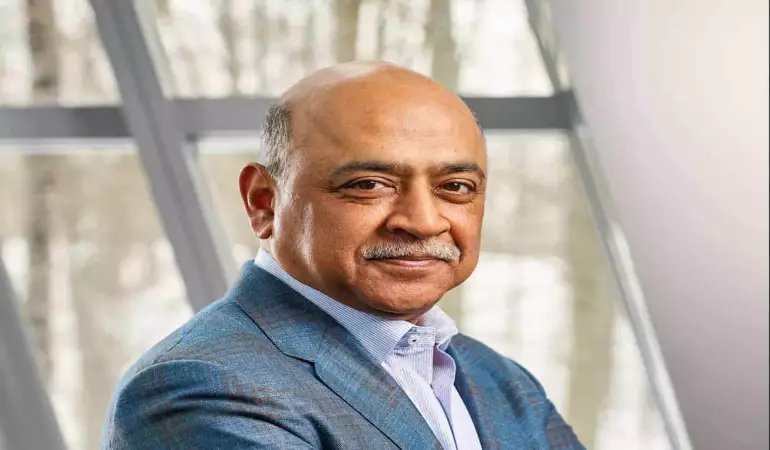IBM CEO speaks out on China's DeepSeek: Here's what he thinks
Arvind Krishna, CEO of the US company IBM, published a statement in Fortune, expressing his thoughts on one of the biggest sensations of today - the Chinese artificial intelligence (AI) chatbot DeepSeek.
February 05, 2025 14:01
DeepSeek Proves the Opposite Can Be Done
According to Krishna, DeepSeek has challenged the established norms of artificial intelligence (AI).
“While many have assumed that training cutting-edge models requires over $1 billion, thousands of state-of-the-art chips, and that AI must be proprietary and secretive because only a few companies have the talent to build it, DeepSeek has proven otherwise,” he wrote.
Reports indicate that DeepSeek was trained using just 2,000 Nvidia chips, a fraction of the expected cost of about $6 million.
“This reaffirms what we’ve always said: smaller, efficient models can deliver real results without huge, proprietary systems,” said the IBM CEO.
IBM CEO’s insights on the future of AI
The IBM CEO also reflected on what will shape the future of AI.
According to him, the development of AI cannot be in the hands of a few players. It would be best to ensure that AI is developed by a broad coalition – universities, companies, research labs and civil society organizations.
“The real path to innovation and progress can only emerge by democratizing AI,” declared A. Krishna.
Moreover, he believes that 2025 should be the year when we free AI from the hands of a few dozen players. By 2026, the general public should not only be using AI – they should be building it.
According to the IBM CEO, the best lesson from DeepSeek is that AI engineering should be optimized for performance and cost.
“I disagree with the notion that generative AI (AGI) is just around the corner or that the future of AI depends on building Manhattan-sized, nuclear-powered data centers. There is no law of physics that dictates that AI must remain expensive. The costs of learning and output are not fixed – they are engineering challenges that need to be solved,” he wrote.
For technology companies, Krishna said, it is important to focus on how to make AI more practical and widely applicable.
"Technology becomes transformative only when it becomes accessible and accessible. By adopting open and efficient AI models, companies can leverage cost-effective solutions tailored to their needs and unlock the full potential of AI across industries," the IBM CEO concluded.




